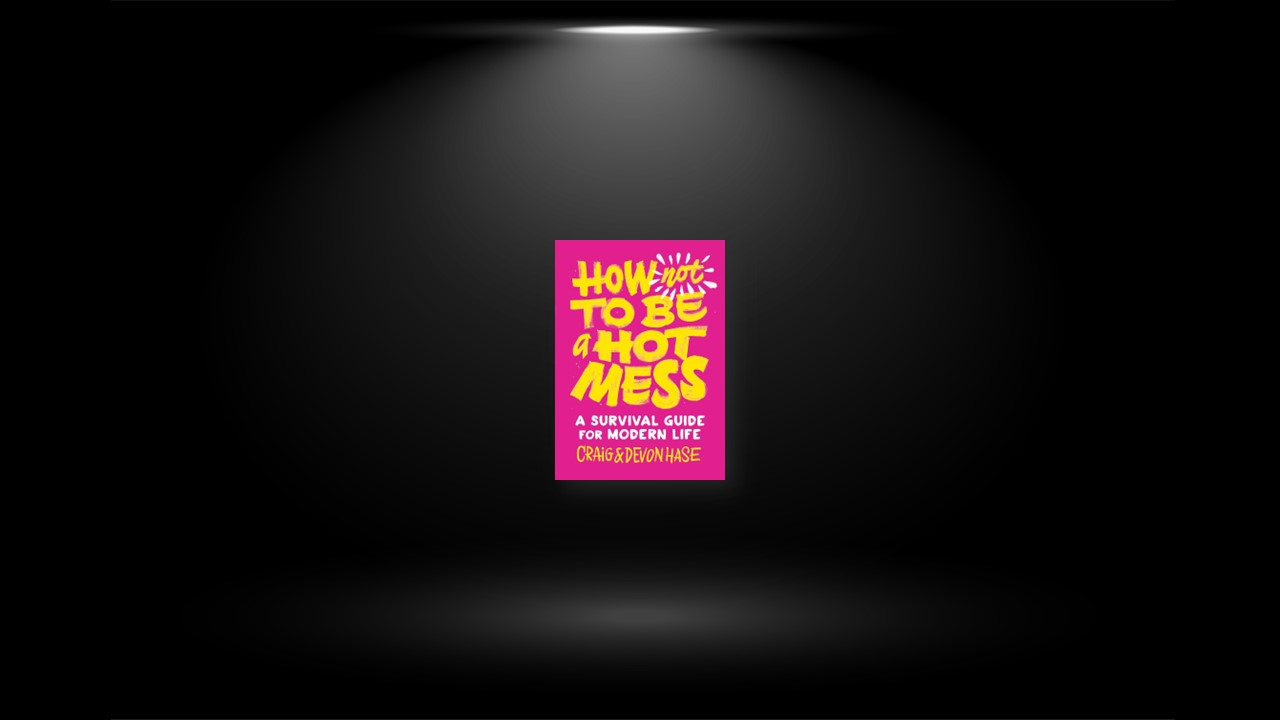Meditate
Let’s start with a five-minute exercise. Five minutes is just enough time to let the mind drop into the body. And letting the mind drop into the body is a great way to release some of the spinning, storming thoughts that make us unhappy for no great reason. So let’s start by getting comfy. When we’re meditating, it’s nice to be relaxed and at ease, but it’s also helpful to be energized and alert in your body. You can try sitting on a cushion on the floor, or in a chair, or on your couch. Your posture can vary—the point is just to make sure your body feels supported but also awake. Close your eyes if you like, or keep a soft, downward gaze.
Now, take a few deep breaths. As you exhale, let go of any thoughts or worries or plans you might have running through your head. Allow your breath to return to a natural rhythm, and simply feel your body from the inside out. Explore your inner weather patterns. Is it sunny inside? Or stormy? Or maybe you can’t feel anything at all. That’s okay. Just stay curious about this experience of having a body. Do you feel tension or ease in different parts of your body? Do you feel warm or cool? Do you feel pressure where you’re sitting? Use your awareness to feel all your bodily sensations as they come and go.
Of course, your mind will wander and get lost in thoughts as you do this. This is normal and natural and supposed to happen. When you notice that you’re distracted, that’s okay. You haven’t failed at meditation. This recognition of your wandering mind is actually a moment of sati, of remembering to be aware. Just come back to feeling your body in the present moment.
Mindfulness is simply setting the intention to be present and then training your mind to come back again and again. In this meditation, we’re focusing on body sensations. So keep coming back to your body and feel it from the inside. Let’s do this for a few more breaths.
There are approximately one bajillion reasons why you should meditate. The top three reasons are that you’ll be less stressed, more focused, and you might even stumble your way into slightly better humanhood. Meditation will, in other words, make you somewhat less of a hot mess.
While mindfulness is the foundation for a really pretty decent life, you’ll need more than a foundation to survive the onslaught. You’ll have to use the calm and focus and clarity you develop through meditation like a spotlight—a spotlight that we’ll now help you turn toward how you speak, what you do, and who you are at work and at school and at home.
Don’t Be a Jerk
It’s easy to fall into the habit of thinking people are just out for themselves. Why? There’s a bunch of factors. The twenty-four-hour news cycle, so desperate to grab your attention, depends on the shock of people being despicable—the ultimate clickbait. Movies need tension—and what better drama than a crook or a villain? Yet day-to-day life is, by movie standards, pretty drama-free. It’s just dads waking up and getting their kids ready for school. Social workers finding housing for the homeless. Coworkers bringing coffee to the team. No headlines there. Goodness is just too ordinary to grab anybody’s attention. And yet. When practiced—when cultivated—it’s life-changing.
Here’s a little experiment to try. Just think of something sweet you did once. Doesn’t have to be big. Could be the smallest thing. You took a shift for your coworker. You sat up with a friend who was sad. Whatever. Now soak in that. Let your goodness sink in for a bit. And see how it feels.
Nice job. Next, think of something little you could do for someone else. Could be a kind word, a quick errand, a nice gift. You might send an email or a text. You might appreciate somebody. Or send good vibes. Now go do that thing.
Nobody likes a jerk. Being a jerk is a real downer. And we should really stop killing people—even online, even with words—if we want to live a happy life free of the hot mess–making madness of our questionable habits. And, by the way, we actually have choices. Every moment we have a choice. Kind of like flipping between radio stations. We can choose to remain like a block of wood for a minute, rather than blow a gasket. Better yet, we can choose to build kindness many times a day, every day, until kindness becomes our modus operandi, in such a way that we begin to be as helpful as possible, in a life-affirming upward spiral of glorious, glowing goodness.
Give a Little
From a semi-Buddhist perspective, generosity is the very foundation of a decent life. Why? Well, for one thing, it’s very nice to live in a social world constructed of mutually enriching and well-intentioned munificence. Compare that to a bunch of unhappy creeps always trying to take each other’s stuff. Which would you choose? That’s the obvious point.
Less obvious—and maybe even more important for our purposes—is that generosity fills you up. This concept is one of those beautiful semi-Buddhist paradoxes that it pays to remember when you’re feeling bereft, discombobulated, and generally like a hot mess. Because when we give to others in wise ways, freely, of our own good wishes, that giving not only helps them; it helps us. As studies have shown, giving boosts your mood, improves your health, and makes you a generally more robust and joyful human.
Give something. Right now. Don’t wait. It could be anything. No matter how small. But find some way to give something in this very moment. And…send somebody a text about how much you really appreciate them, or walk into the next room and hug your kids, or go online and one-click on a gag gift for a dear friend. Doesn’t matter what you do. Just give. And stay with the meditation, continuing to notice how it feels in your body and mind as you do all this.
Say What’s True
First, lying is stressful. Second, lying kills your reputation. Third, lying is literally bad for your (mental and physical) health. Okay. So. Lying. Is. Bad. Don’t do it. Or at least try not to do it. Now you’re just going to walk around telling the absolute truth all the time to everyone you meet, friend or stranger, bus driver or boss, right?
Thankfully, a really long time ago, the Buddha offered a bunch of good advice. In fact, all those years ago, he didn’t just say, “Say what’s true,” he actually gave a handy-dandy list of questions to ask ourselves before we say anything at all.
Is This True?
Is what I’m about to say true? Am I speaking the truth? Is what I’m saying clear and honest? Or am I bending things in some way? Am I spinning, pushing the truth a bit, massaging the facts to get something I want out of this interaction? If the answer to any of these questions is anything but “Yup, this is true,” then the Buddha advises that you don’t speak. Instead, take a moment, hold your tongue, and consider other options.
Is This Kind?
Is what I am about to say kind? Is what I am about to fire off in this text or email considerate? Is this heated missive in an online forum caring? Is it taking into account the other person’s inner world? Even when that other person might be a loved one who has seriously pissed me off, or a total stranger who so obviously seems to deserve a whopping verbal punch in the proverbial face?
Is It Timely?
Is what I am about to say timely? Is this the right time to say this? If it’s eleven o’clock at night and your boyfriend/girlfriend/significant other is about to fall asleep, is this the right time to bring up that thing that happened at eleven o’clock this morning and has been kind of troubling you, but not really that much, but actually, well, kind of a lot? I’m not saying it would definitely be the wrong time. But you could think it through. Might there be another time to bring this up honestly and kindly that would better serve the conversation?
Is It Helpful?
So these words are about to leave my mouth. Quick check: Are they actually helpful? Are they going to move the situation forward in the way I want? How will they land for the person (or people) in front of me? Sometimes, for sure, it’s hard to know what’s helpful and what’s not. And it’s definitely tough to know just exactly how something will land for the people in our lives. But one surefire way to get it right a lot more of the time is to at least make sure your intention is to be helpful.
What we don’t want to do is make this into some rigidly unattainable goal of theatrical smoothness. It is a work in progress; me, too; you, too: everybody’s just stumbling through together, trying to figure it all out. The key is to start checking your mind. What are you thinking? Could it be slightly truer, kinder, and the rest? Then check the words that are about to leave your lips. The more you say what’s true and kind and timely and helpful, the more the world will begin to become a friendlier place.


